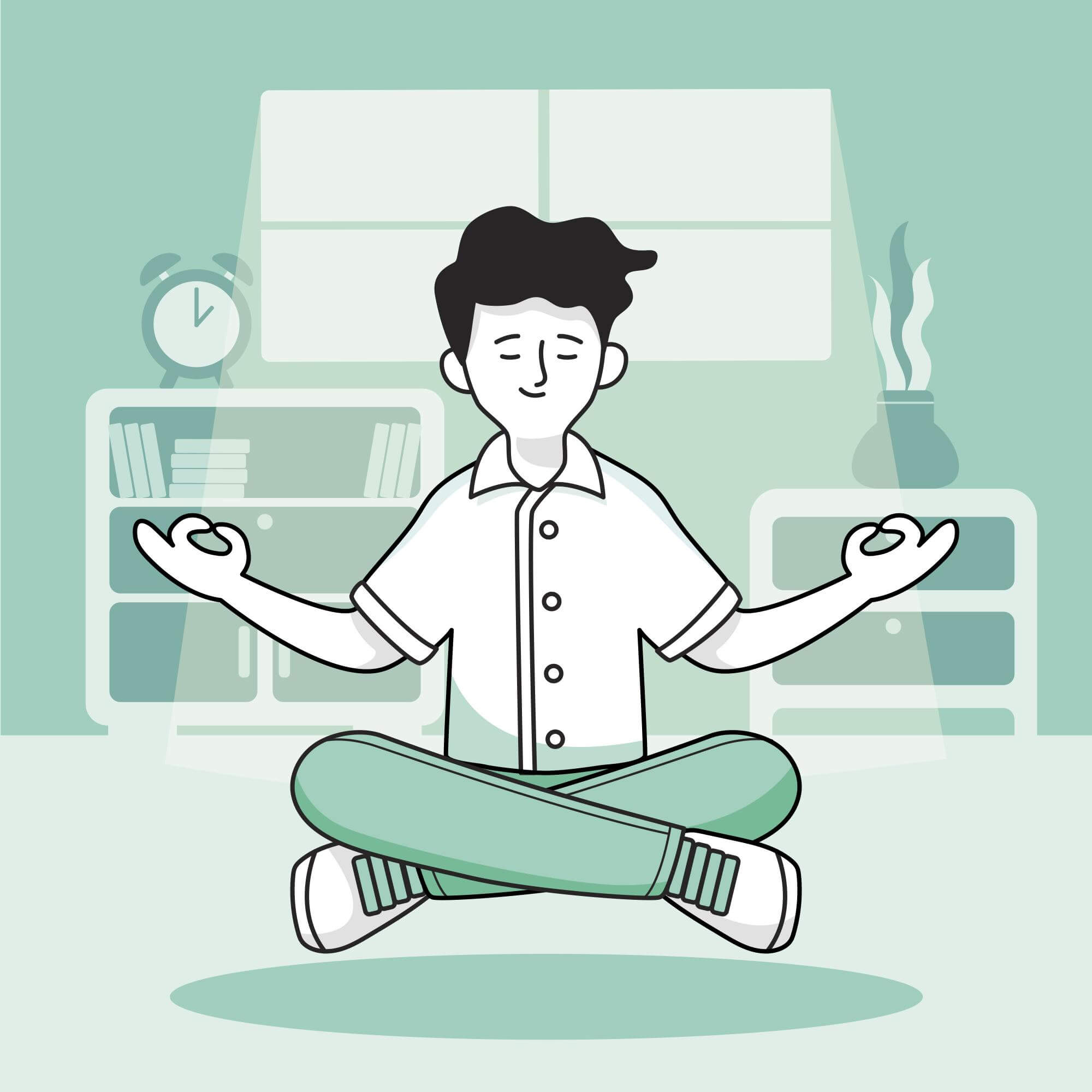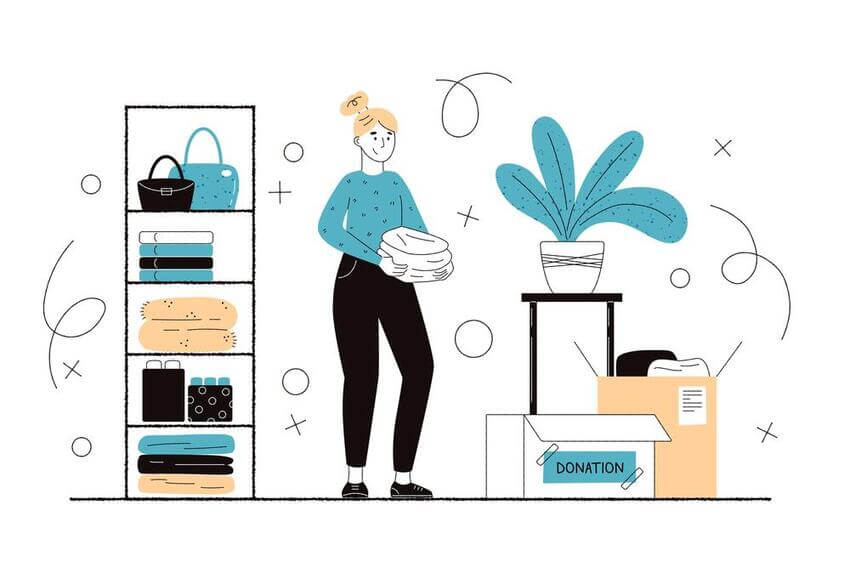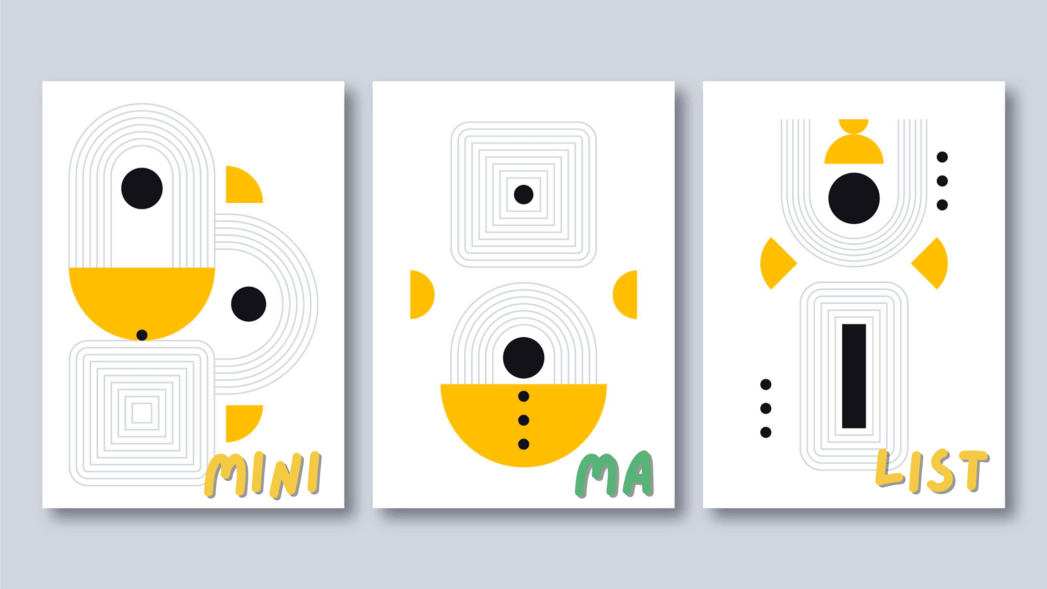In a world pulsating with excess, where the narrative often celebrates more, faster, and bigger, the minimalist lifestyle stands as a quiet revolution. Embracing the essence of ‘less is more,’ minimalism isn’t merely a trend; it’s a profound shift in perspective—a conscious choice to simplify our lives intentionally. At its core, the minimalist lifestyle champions the art of living with purpose, focusing on what truly matters. Here, we’ll explore the depths of minimalism, its profound impact, and how this deliberate way of living can pave the path to unparalleled joy and contentment in our modern, fast-paced world.
Table of Contents
ToggleDefine Minimalist Lifestyle
The minimalist lifestyle isn’t solely about owning a specific number of items or maintaining a sterile living space. It’s a philosophy that redefines our relationship with possessions, consumption, and even our mindset. At its essence, minimalism is about stripping away the unnecessary, eliminating the excess that weighs us down physically, mentally, and emotionally. It’s an intentional move towards simplicity, focusing on what truly adds value to our lives while shedding the distractions that cloud our vision of contentment.
Importance of Embracing Minimalism in Modern Life
In an era characterized by constant stimulation and consumerism, embracing minimalism offers a refreshing counterbalance. The pace of modern life often leaves us overwhelmed, suffocated by possessions, commitments, and a perpetual chase for more. However, by adopting a minimalist lifestyle, individuals can reclaim control over their lives. This deliberate choice fosters clarity, allowing us to discern between the essential and the superfluous, ultimately leading us toward a path of liberation, peace, and profound joy.
Understanding Minimalism
What is Minimalism?
Minimalism transcends the mere act of decluttering or simplifying possessions. It’s a profound mindset shift that invites us to evaluate the role of material possessions in our lives and consciously prioritize what truly matters. At its core, minimalism encourages intentional living—aligning our actions and possessions with our values and aspirations.
Minimalism isn’t about deprivation or denying oneself; rather, it’s about discovering abundance in simplicity. It’s an invitation to curate a life that’s purposeful, fulfilling, and aligned with our individual definitions of happiness and contentment.
Core Principles of Minimalist Living
1. Simplicity as a Key Element
Simplicity lies at the heart of minimalism. Embracing simplicity doesn’t mean forsaking life’s pleasures; instead, it’s about streamlining our lives to amplify what truly brings us joy. It’s paring down the excess—whether it’s material possessions, commitments, or distractions—to revel in the clarity and freedom that simplicity offers.
2. Mindful Consumption and Intentionality
Minimalism champions mindful consumption—an intentional approach to what we bring into our lives. It prompts us to pause before making purchases, asking ourselves whether the item aligns with our values and if it genuinely enhances our life in a meaningful way. This mindfulness fosters a deeper appreciation for what we own, leading to a more fulfilling existence.
3. Decluttering Physical and Mental Space
Minimalism extends beyond physical decluttering; it encompasses decluttering mental space as well. By letting go of excess belongings and unnecessary commitments, we create room not just in our homes but also in our minds. This decluttering process liberates us from the weight of possessions and mental clutter, fostering mental clarity and inner peace.
The principles of minimalism—simplicity, mindfulness, and decluttering—are interconnected threads that weave together to form a tapestry of intentional living. Understanding and embracing these principles set the foundation for embarking on a minimalist lifestyle—a journey toward discovering the power of less and unlocking maximum joy in our lives.

Benefits of Embracing Minimalism
Mental Clarity and Reduced Stress
One of the foremost advantages of embracing minimalism is the profound impact it has on mental well-being. By decluttering both our physical and mental spaces, we pave the way for enhanced mental clarity. Simplifying our surroundings reduces the visual noise and chaos, allowing our minds to rest and rejuvenate.
Minimalism alleviates the burden of excess—be it possessions, commitments, or distractions—thus lowering stress levels. This intentional lifestyle cultivates a sense of calm and tranquillity, enabling us to focus on what truly matters and fostering a deeper connection with ourselves.
Financial Freedom and Smart Consumption Habits
Minimalism isn’t just about decluttering; it’s about reassessing our relationship with material possessions and our approach to spending. Embracing minimalism often leads to financial liberation. By curbing impulsive purchases and focusing on mindful consumption, we save money and make more conscious spending choices.
Smart consumption habits cultivated through minimalism encourage us to invest in high-quality items that add genuine value to our lives rather than succumbing to the allure of excessive consumerism. This shift in mindset not only bolsters our financial well-being but also promotes a sense of fulfilment derived from intentional and thoughtful purchases.
Environmental Impact and Sustainability
Minimalism inherently aligns with sustainable living practices. By advocating for a ‘less is more’ approach, minimalism reduces unnecessary waste and consumption. Choosing quality over quantity and embracing a minimalist lifestyle inherently contributes to environmental sustainability.
Reducing our reliance on material possessions translates to fewer resources consumed, less waste generated, and a smaller carbon footprint. Embracing minimalism empowers individuals to make environmentally conscious choices, thereby contributing positively to the planet’s well-being.

Getting Started with Minimalism
Assessing Personal Values and Goals
The journey toward a minimalist lifestyle begins with introspection. Take time to assess your personal values, aspirations, and goals. Reflect on what truly matters to you—both in terms of possessions and life experiences. Understanding your priorities will guide your journey toward intentional living and help you align your actions with your values.
Decluttering Guide:
1. Room-by-room approach
Begin your minimalist journey by adopting a room-by-room approach to decluttering. Start with one area at a time—whether it’s a closet, a bookshelf, or a workspace. Evaluate each item, asking yourself if it serves a purpose or brings genuine joy. Be intentional about what stays and what goes, aiming to keep only the items that align with your values and goals.
2. Sentimental Items and Letting Go
Letting go of sentimental items can be challenging, but it’s an integral part of embracing minimalism. Approach these items with a discerning eye, focusing on preserving memories rather than physical objects. Consider taking photos or creating digital keepsakes to cherish the sentimental value without holding onto the physical clutter.
Smart Purchasing Decisions: Quality over Quantity
Adopting a minimalist lifestyle involves a shift in mindset when it comes to making purchases. Prioritize quality over quantity and invest in items that are durable, functional, and aligned with your needs. Before making a purchase, pause and evaluate whether the item adds significant value to your life or if it merely contributes to clutter.
Minimalist Design and Aesthetics
The minimalist design emphasizes clean lines, open spaces, and simplicity. Incorporate minimalist design principles into your living spaces by choosing furniture and décor that are both functional and visually uncluttered. Opt for neutral colours, multifunctional pieces, and intentional placement to create a harmonious and serene environment.
Getting started with minimalism involves a thoughtful evaluation of your values, a systematic decluttering process, mindful purchasing decisions, and a conscious effort to incorporate minimalist design aesthetics. These foundational steps will pave the way for a more intentional and fulfilling lifestyle centred around the power of less.

Implementing Minimalism in Daily Life
Minimalist Wardrobe Essentials
Capsule Wardrobe Guide
Curating a capsule wardrobe forms the cornerstone of minimalist dressing. Streamline your closet by selecting versatile, timeless pieces that can be mixed and matched effortlessly. Embrace quality over quantity, focusing on essential items that align with your personal style. A well-curated capsule wardrobe promotes simplicity, reduces decision fatigue, and ensures you always have stylish and functional outfits at hand.
Minimalist Home: Simplifying Spaces
Furniture and Décor Tips
Transforming your home into a minimalist haven involves deliberate choices in furniture and décor. Opt for multifunctional furniture that serves practical purposes while maintaining a clean aesthetic. Embrace minimalistic design principles by incorporating open spaces, decluttering surfaces, and choosing décor items that add value without overwhelming the space.
Minimalist Digital Habits: Organizing Online Life
Digital Decluttering and Minimalist Apps
Extending minimalism to the digital realm involves decluttering and organizing your online life. Start by decluttering your digital devices—sort through files, apps, and emails, keeping only what’s essential and relevant. Embrace minimalist apps designed to streamline tasks, manage digital clutter, and promote productivity. Implementing digital minimalism ensures a focused and organized online presence, reducing digital distractions and enhancing efficiency.
Implementing minimalism into your daily life requires intentional choices in your wardrobe, home environment, and digital habits. Embracing minimalist wardrobe essentials, simplifying home spaces, and organizing your digital life pave the way for a more intentional and uncluttered lifestyle, allowing you to focus on what truly matters.

Overcoming Challenges
Dealing with Consumerism and Temptation
Resisting the pull of consumerism in a society that constantly promotes excess can be challenging. Combat the lure of impulse buying by practising mindful consumption. Pause and reflect on whether a purchase aligns with your values and contributes meaningfully to your life. Cultivate contentment with what you already have and prioritize experiences over possessions to counter consumerist temptations.
Coping with Attachments to Material Possessions
Letting go of attachments to material possessions is a significant hurdle in embracing minimalism. Acknowledge the sentimental value of certain items while understanding that memories reside within us, not within the objects themselves. Gradually decluttering and releasing attachments can be a process—start with small steps and celebrate the liberation and mental clarity that comes with letting go.
Nurturing Minimalism as a Lifestyle Choice
Embracing minimalism isn’t just a one-time purge; it’s a continuous journey. Nurture minimalism as a lifestyle choice by regularly reassessing your possessions, habits, and mindset. Surround yourself with supportive communities or resources that encourage and reinforce your minimalist journey. Embrace the evolving nature of minimalism, adapting it to suit your changing needs and circumstances.
Overcoming challenges in adopting a minimalist lifestyle involves consciously addressing consumerism, managing attachments to possessions, and nurturing minimalism as an ongoing lifestyle choice. By navigating these hurdles with intentionality and perseverance, you pave the way for a more deliberate and fulfilling way of living.

Impact on Mental Health and Well-being
Stress Reduction and Improved Focus
Embracing minimalism has a profound impact on reducing stress and enhancing focus. By decluttering physical and mental spaces, minimalist living creates an environment conducive to tranquillity and mental clarity. With fewer distractions and visual noise, individuals experience reduced stress levels and an improved ability to concentrate on what truly matters, leading to heightened focus and a sense of calm.
Enhanced Creativity and Productivity
Minimalism fosters an environment that nurtures creativity and boosts productivity. A streamlined, clutter-free space provides the mental freedom necessary for creative thinking and innovation. By eliminating distractions, individuals find it easier to channel their energy and creativity toward meaningful endeavours, enhancing productivity and fostering a sense of accomplishment.
Finding Joy in Simple Living
One of the most profound impacts of embracing minimalism is the discovery of joy in simple living. Minimalism encourages individuals to savour life’s simple pleasures and find contentment in the present moment. By shifting the focus from material possessions to experiences and meaningful connections, individuals discover a deeper sense of fulfilment and satisfaction in the beauty of simplicity.
The impact of a minimalist lifestyle on mental health and well-being is multifaceted—it encompasses stress reduction, improved focus, heightened creativity, increased productivity, and the discovery of joy in the simplicity of everyday life. Embracing minimalism not only transforms physical spaces but also nurtures a more peaceful and content state of mind.
Case Studies and Real-life Examples
Stories of Individuals Embracing Minimalism
Exploring the real-life experiences of individuals who have embraced minimalism provides invaluable insights and inspiration. Hearing their stories, challenges faced, and transformative journeys helps others relate and find the motivation to embark on their minimalist path. These stories often showcase diverse perspectives, highlighting how minimalism can positively impact various aspects of life, from relationships to careers and overall well-being.
Testimonials and Personal Transformations
Testimonials and personal transformations serve as powerful testimonials to the impact of minimalism. These first-hand accounts often detail the before-and-after scenarios—how individuals felt weighed down by excess and how adopting a minimalist lifestyle led to liberation and a renewed sense of purpose. They highlight the emotional, mental, and sometimes financial transformations that occur when one chooses intentional living over material accumulation.
Real-life examples and testimonials provide tangible evidence of the transformative power of minimalism. They inspire and encourage others to embrace minimalism, showing that it’s not merely a trend but a life-altering choice that brings about profound positive changes.
As you embark on or continue your minimalist journey, remember that it’s a personalized path—a journey of self-discovery and intentional choices. Take gradual steps, celebrate progress, and be gentle with yourself through the process. Embrace the journey toward intentional living with an open heart and mind. Seek communities, resources, or support that resonate with your minimalist aspirations. Your journey towards a more intentional, fulfilled life starts with a single step—take it boldly.
Resources and Further Reading
If you’re seeking captivating content on Lifestyle, explore this section for more engaging information. [CLICK]




